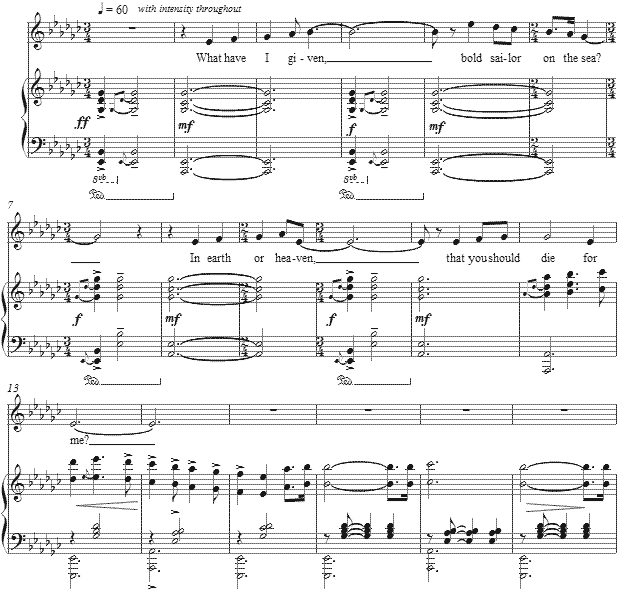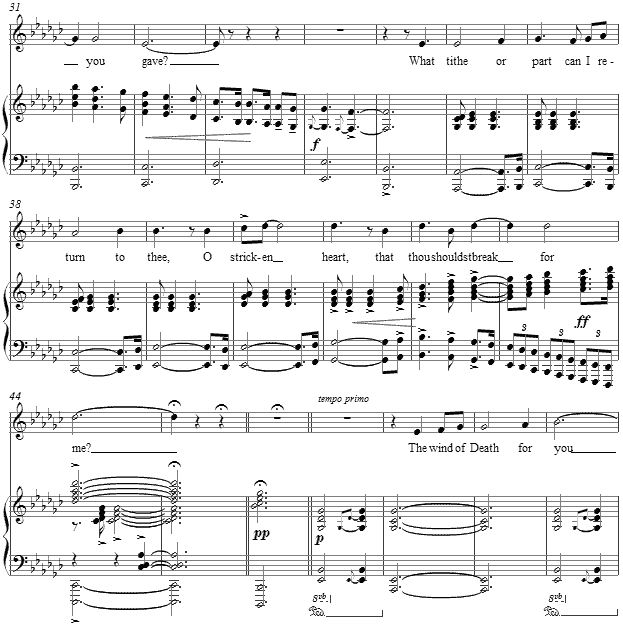Music and Texts of GARY BACHLUND
Vocal Music | Piano | Organ | Chamber Music | Orchestral | Articles and Commentary | Poems and Stories | Miscellany | FAQs
The Debt Unpayable - (2009)
Francis William Bourdillon
for medium voice and piano
What have I given,
Bold sailor on the sea?
In earth or heaven,
That you should die for me?
What can I give,
O soldier, leal and brave,
Long as I live,
To pay the life you gave?
What tithe or part
Can I return to thee,
O stricken heart,
That thou shouldst break for me?
The wind of Death
For you has slain life's flowers,
It withereth
(God grant) all weeds in ours.[ 3 pages, circa 3' 50" ]
Christ Church, Oxford, War Memorial Gardens
A late Victorian English poet, scholar and translator from Sussex, Francis William Bourdillon (1852 - 1921) was educated at Worcester College, Oxford, and tutored the the sons of Prince Christian of Schleswig-Holstein at Cumberland Lodge, and tutored also at the University of Eastbourne in Sussex. His work spans over 500 poems in 13 volumes, as well as editions of poems and chronicles from Old French. He translated Aucassin et Nicolette (1887), wrote a scholarly work The Early Editions of the Roman de la Rose (1906), Russia Reborn (1917), and published a number of essays with the Religious Tract Society.
This poem is itself a war memorial, much like the many memorials which fill the world, such as that above at Bourdillon's Oxford University. Given the seemingly modern sense of protests against both the arguably just wars of the modern era, it remains a demonstration of astounding double standards that the modern Western political Left manages to reserve its vehemence for the just wars, while so consistently ignoring -- or at the minimum paying empty and cynical lip service to protests against -- the many unjust wars which dotted the last century's history. The fact of freedom is that it has been delivered to the world by millions of anonymous soldiers and sailors whose valor valor so exceeds the self-absorbed narcissism and utterly inconsistent philosophy of the anti-war movement as evidences over decades. Freedom is advanced by fighting for it, sad to say.
The four stanzas are set as an A-A'-B-A' form, in which the harmonic emphasis is one the tonic minor moving with a repetitive insistence to the subdominant minor.
The third stanza begins on the subdominant minor as a relief from the previous gestures and patterns. The high point dramatically occurs at the end of this stanza, before a return to the A section for the last stanza of the poem.
The score for The Debt Unpayable is available as a free PDF download, though any major commercial performance or recording of the work is prohibited without prior arrangement with the composer. Click on the graphic below for this piano-vocal score.


